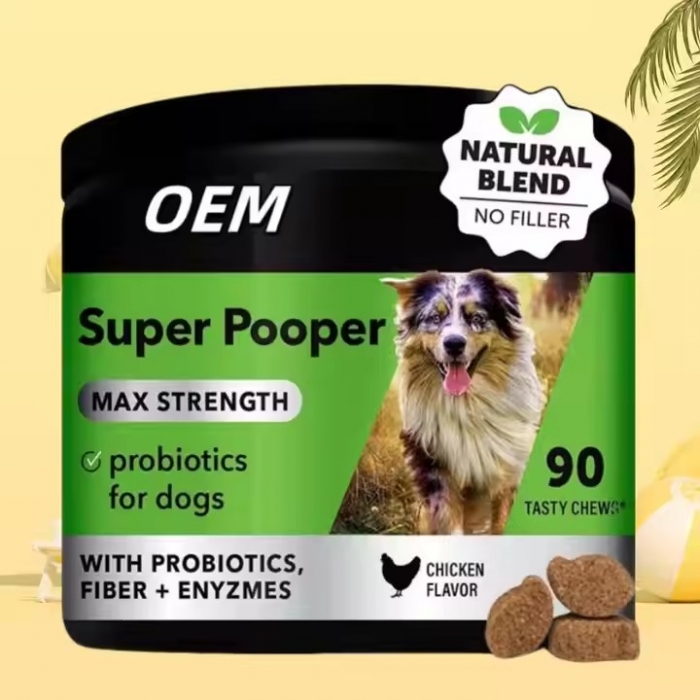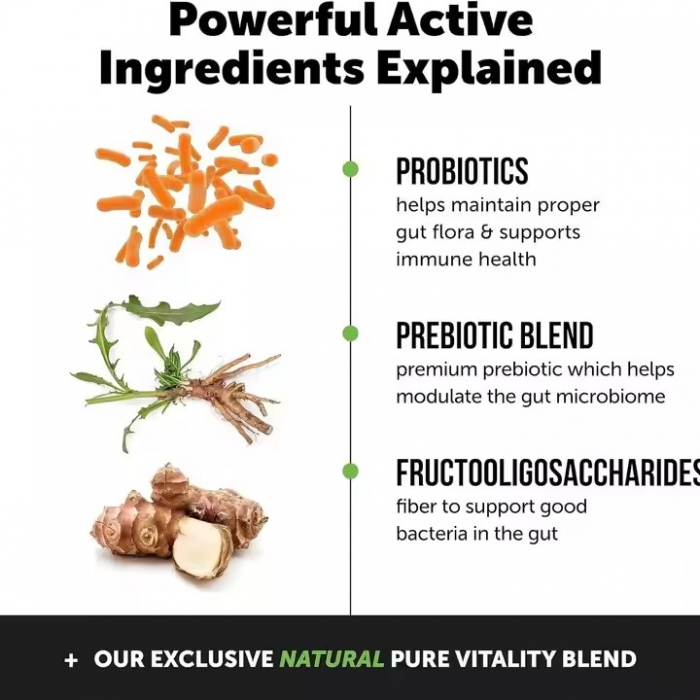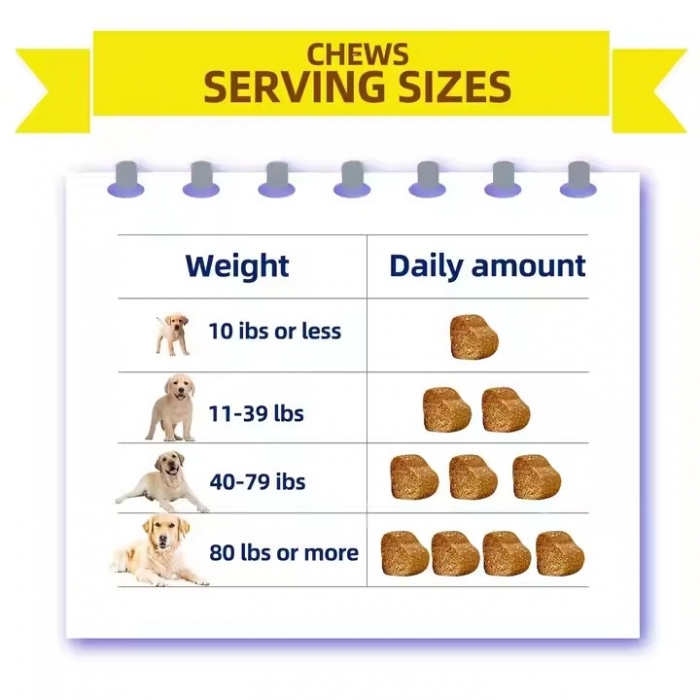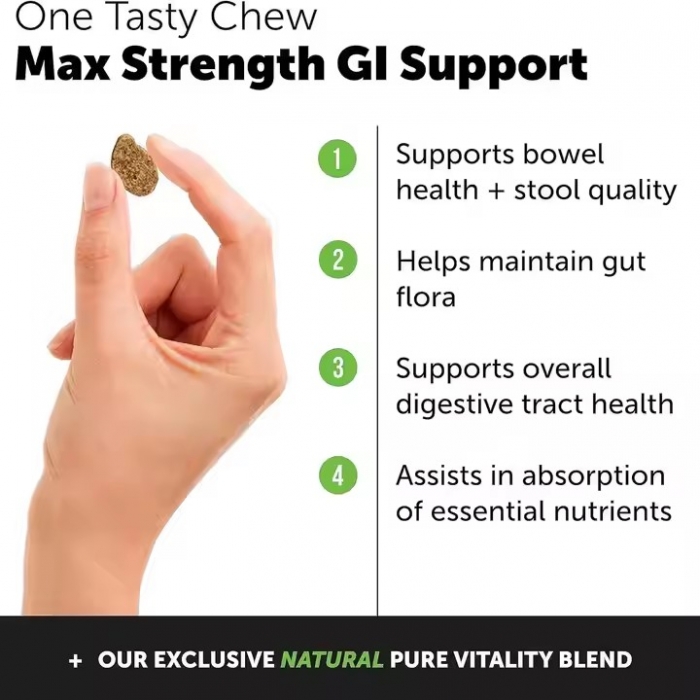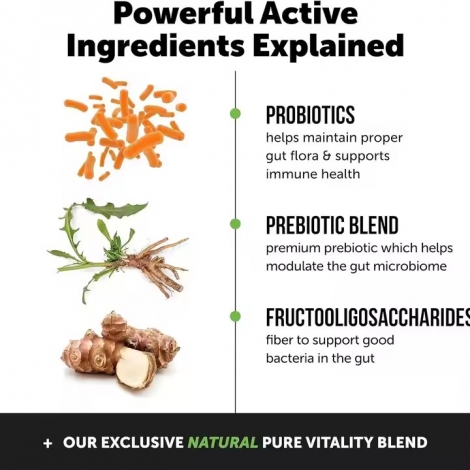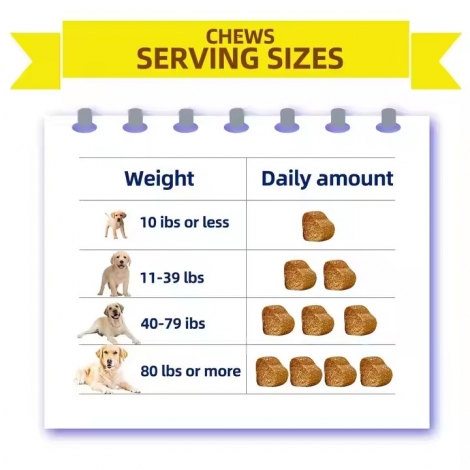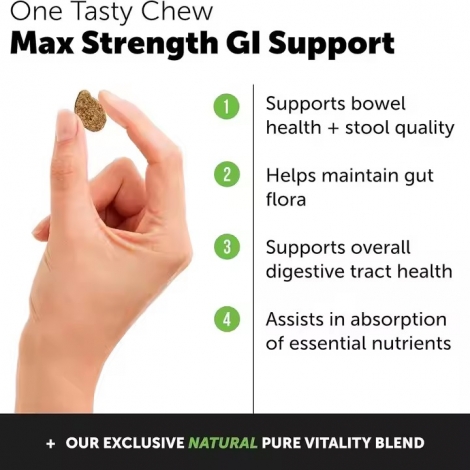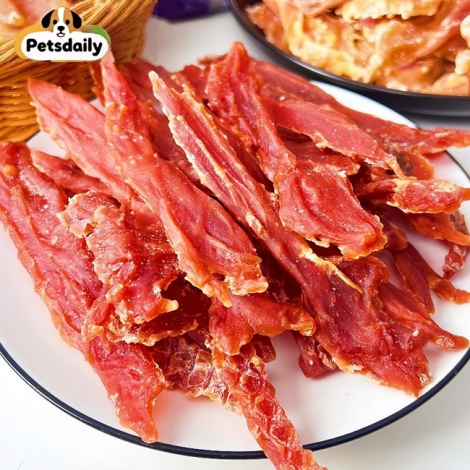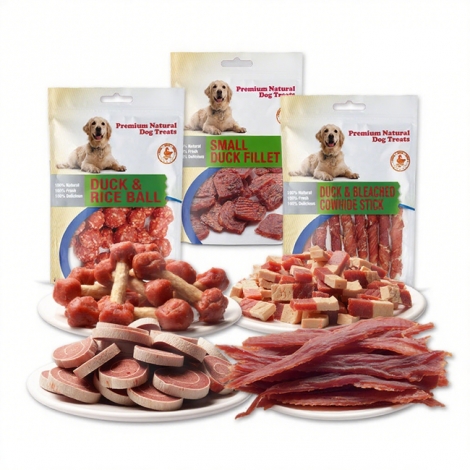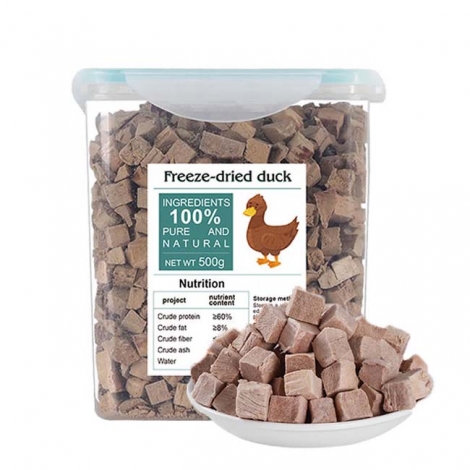| Name: | Wholesale Probiotics for Dogs Intestinal Flora Digestive Diarrhea Supplements Pet Health Care(OEM Optional) |
|---|---|
| Feature: | PURE NATURAL |
| Applicable Pet: | Pet intestinal nutritional supplements |
| Main Ingredient: | PROBIOTICS,PREBIOTIC BLEND,FRUCTOOLIGOSACCHARIDES... |
| Life stage: | All |
| Material: | Hydrolyzed chicken peptides, probiotics, prebiotic, sunflower oil... |
| main function: | pet intestinal healthy |
| Health Feature: | INTESTINAL HEALTHY |
| Unit Weight: | 3g/pc |
| Special Diet: | Grain-Free, pure natural |
Product description
Probiotics
Many soft chew products for canine intestinal health contain probiotics such as Lactobacillus acidophilus and Bifidobacterium. These probiotics can regulate the balance of the intestinal flora. For example, Lactobacillus acidophilus can produce lactic acid in the dog's intestine, lower the intestinal pH value, create an acidic environment that is unfavorable for the growth of harmful bacteria, and at the same time promote the reproduction of beneficial bacteria.
Bifidobacterium helps break down the nutrients in food, enhances the dog's digestive function, and can also assist in synthesizing vitamins that dogs cannot synthesize on their own, such as vitamin K.
Bifidobacterium helps break down the nutrients in food, enhances the dog's digestive function, and can also assist in synthesizing vitamins that dogs cannot synthesize on their own, such as vitamin K.
Prebiotics
Common ingredients include fructooligosaccharides and the like. Prebiotics are the "food" for probiotics. They can selectively stimulate the growth and activity of beneficial bacteria in the intestine. Fructooligosaccharides can smoothly pass through the dog's stomach and small intestine, and after reaching the large intestine, they can be fermented and utilized by beneficial bacteria such as Bifidobacterium, thus increasing the number of beneficial bacteria.
Dietary Fiber
Dietary fiber comes from plants such as pumpkins and sweet potatoes. These ingredients can increase the volume of feces, promote intestinal peristalsis, and prevent constipation in dogs. For example, the dietary fiber in pumpkins can absorb the water in the intestine, making the feces softer and easier to be excreted.
Digestive Enzymes
The product may contain digestive enzymes such as amylase and protease. Amylase can help break down starch in food and convert it into simple sugars such as glucose, which is convenient for dogs to absorb. Protease can break down proteins into amino acids, which is very important for dogs to digest high-protein foods such as meat.

Hits: 【Print】
